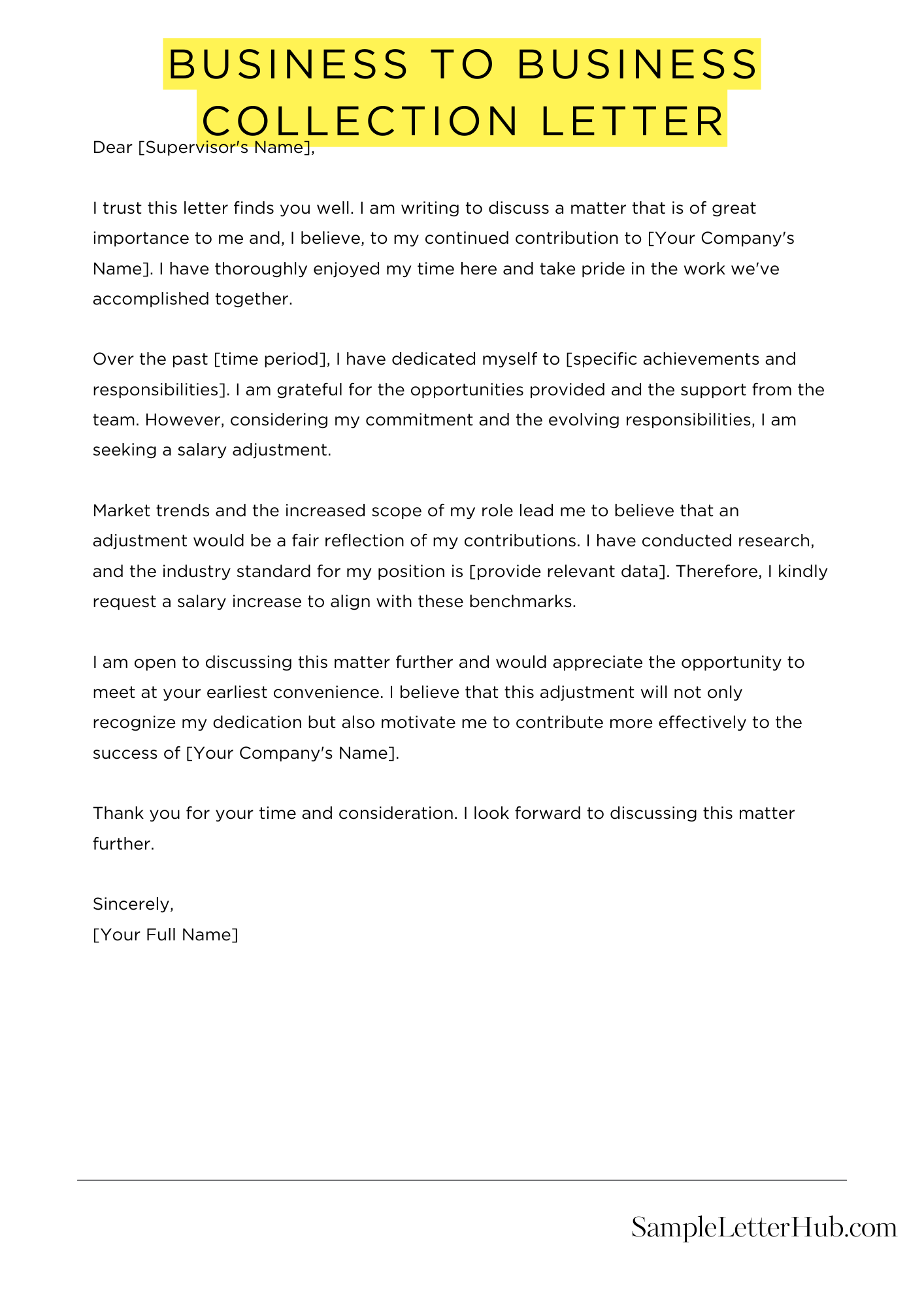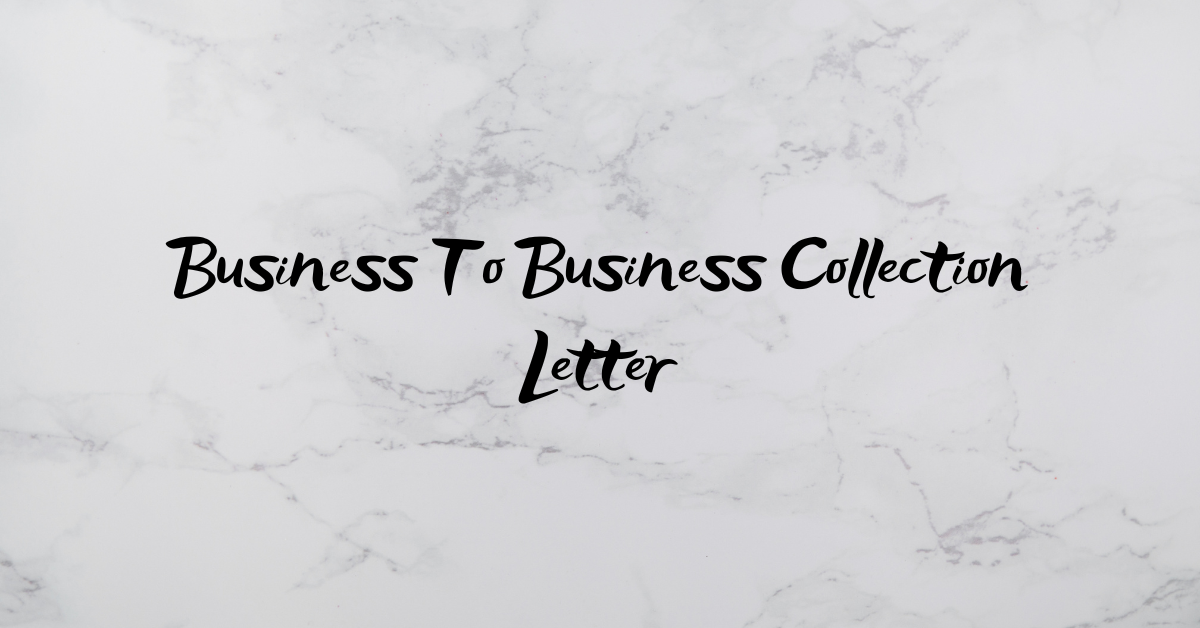Business To Business Collection Letter is a formal letter sent by a business to another business to request payment for goods or services that have been provided but not yet paid for. The purpose of this letter is to remind the recipient of the outstanding balance and to request payment within a specified time frame.
In this article, we will share templates, examples, and samples of Business To Business Collection Letters. These letters are designed to help you write effective and professional collection letters that will increase your chances of recovering the outstanding payment.
The templates and examples provided in this article are customizable, so you can easily adapt them to fit your specific needs. Simply download the template or example that you want to use, and then fill in the blanks with your own information.
Business to Business Collection Letter
Dear [Recipient Name],
We are writing to follow up on the outstanding balance of [amount] for invoice number [invoice number]. The invoice was due on [due date], and we have not yet received payment.
We understand that unexpected circumstances can arise, and we are willing to work with you to find a solution. Please contact us as soon as possible to discuss a payment plan or alternative arrangements.
We value our business relationship with you and would like to resolve this matter amicably. Your prompt attention to this matter would be greatly appreciated.
If you have already made a payment, please disregard this letter.
Thank you for your cooperation.
Sincerely,
[Your Name]

How to Write a Business-to-Business Collection Letter
When a business owes you money, it can be frustrating and time-consuming to collect. However, there are some steps you can take to increase your chances of getting paid.
1. Send a Polite Reminder
The first step is to send a polite reminder to the business. This letter should be brief and to the point, and it should simply state the amount of money that is owed and the due date.
2. Follow Up with a Phone Call
If you do not receive a response to your reminder letter, you should follow up with a phone call. This is a good opportunity to get more information about the situation and to see if there is anything you can do to help the business pay its debt.
3. Send a Demand Letter
If the business still does not pay its debt, you may need to send a demand letter. This letter should be more formal than your reminder letter, and it should state that you are demanding payment within a certain period of time.
4. File a Lawsuit
If the business still does not pay its debt, you may need to file a lawsuit. This is a last resort, but it may be necessary if you want to collect the money that you are owed.
5. Use a Collection Agency
If you do not have the time or resources to collect the debt yourself, you may want to consider using a collection agency. Collection agencies specialize in collecting debts, and they may be able to get you paid faster than you could on your own.
6. Negotiate a Payment Plan
If the business is unable to pay its debt in full, you may be able to negotiate a payment plan. This will allow the business to pay off its debt over time, and it will give you some peace of mind knowing that you will eventually get paid.
7. Write a Strong Collection Letter
The key to writing a strong collection letter is to be clear, concise, and professional. Your letter should also be persuasive, and it should make the business want to pay its debt.
FAQs about Business To Business Collection Letter
What is a business-to-business (B2B) collection letter?
A business-to-business (B2B) collection letter is a formal request for payment of an overdue invoice from one business to another. It is typically sent after several attempts to collect the payment have been unsuccessful.
What are the key elements of a B2B collection letter?
The key elements of a B2B collection letter include:
- A clear and concise statement of the amount owed and the due date
- A brief explanation of the goods or services that were provided
- A request for payment
- A statement of the consequences of non-payment
- Contact information for the sender
What are some tips for writing an effective B2B collection letter?
Some tips for writing an effective B2B collection letter include:
- Be polite and professional
- Be clear and concise
- Provide all of the necessary information
- Be firm but fair
- Follow up regularly
What are the common mistakes to avoid when writing a B2B collection letter?
Some common mistakes to avoid when writing a B2B collection letter include:
- Being too aggressive
- Being too vague
- Not following up regularly
- Giving up too easily
What are the legal implications of sending a B2B collection letter?
There are a number of legal implications to consider when sending a B2B collection letter. These include:
- The Fair Debt Collection Practices Act (FDCPA)
- The Telephone Consumer Protection Act (TCPA)
- The Fair Credit Reporting Act (FCRA)
It is important to be aware of these laws and to comply with them when sending a B2B collection letter.

